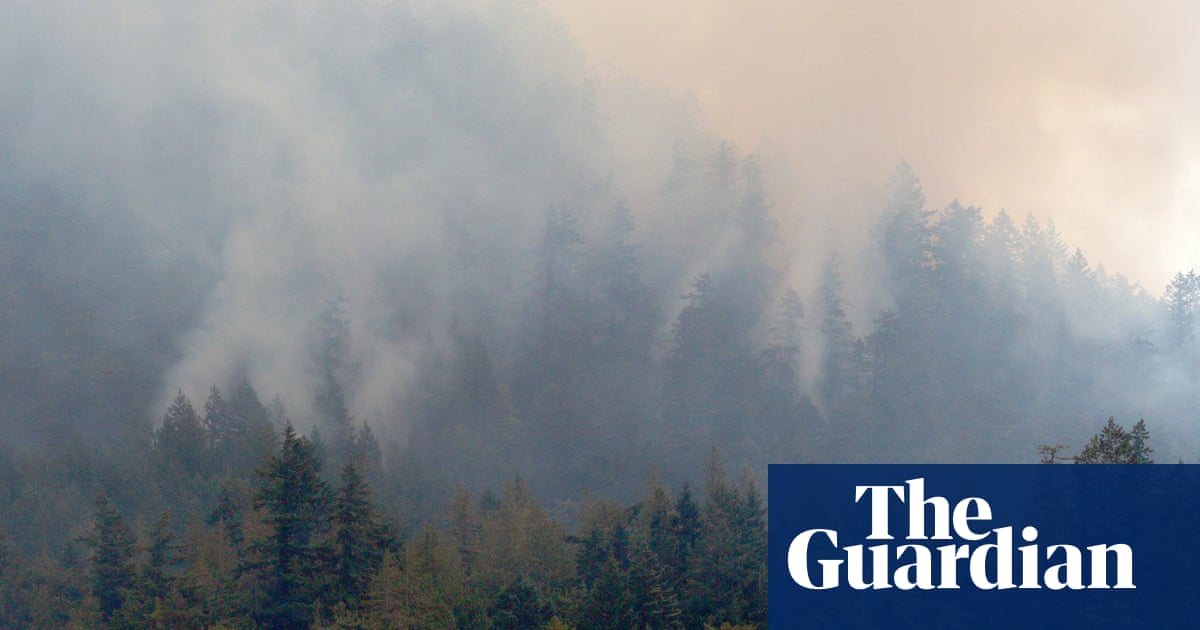Canadian Wildfires Trigger Widespread US Air Quality Alerts and Health Concerns
Over 500 Canadian wildfires are causing severe air quality degradation across the US, impacting millions with dangerous PM2.5 pollutants and significant health risks.
Subscribe to unlock this story
We really don't like cutting you off, but you've reached your monthly limit. At just $5/month, subscriptions are how we keep this project going. Start your free 7-day trial today!
Get StartedHave an account? Sign in
Overview
- Canada is battling over 500 out-of-control wildfires, burning 16.5 million acres in one of its worst seasons. This widespread activity is severely impacting air quality across North America.
- Canadian wildfire smoke has triggered widespread air quality alerts for millions across 11 US states. Major cities like Detroit, New York City, and Chicago experienced some of the worst global air quality.
- The wildfire smoke contains dangerous PM2.5 pollutants, which, when inhaled, can cause serious health issues including heart attacks, strokes, and lung diseases, alongside negative impacts on mental health.
- While surface smoke was expected to clear by Wednesday, higher-altitude smoke is anticipated to linger throughout the week, maintaining "high risk" air quality conditions in many affected US cities.
- Extensive wildfires in Canada and 10 western US states, including California's 72,460-acre Gifford Fire, are straining national firefighting resources. These blazes continue to pose significant environmental and health challenges.
Report issue

Read both sides in 5 minutes each day
Analysis
Center-leaning sources frame this story by emphasizing the escalating severity of wildfires and their direct link to climate change. They consistently highlight the "ongoing crisis" and present reducing greenhouse gas emissions as "the only way" to address it, shaping a narrative that underscores human responsibility and the urgency of climate action.
Articles (5)
Center (1)
FAQ
There are over 700 active wildfires in Canada, burning approximately 16.5 million acres, making this one of the worst wildfire seasons in the region.
Air quality alerts due to Canadian wildfire smoke are affecting 11 U.S. states including Wisconsin, Michigan, Pennsylvania, New York, Vermont, New Hampshire, Maine, Massachusetts, Delaware, Connecticut, and Rhode Island. Major cities impacted include Detroit, New York City, Chicago, Philadelphia, and Boston, with Detroit ranked as having the third worst air quality globally at one point.
The wildfire smoke contains dangerous particulate matter (PM2.5) which can cause serious health issues such as heart attacks, strokes, lung diseases, and also negative impacts on mental health, especially for sensitive groups like those with heart or lung diseases, older adults, children, and pregnant women.
Surface-level wildfire smoke was expected to clear by Wednesday, but higher-altitude smoke is anticipated to linger throughout the week, maintaining high-risk air quality conditions in many affected U.S. cities.
The extensive wildfires in Canada, along with 10 western U.S. states including California's significant Gifford Fire, are straining national firefighting resources, posing continued environmental and health challenges across North America.
History
- This story does not have any previous versions.




